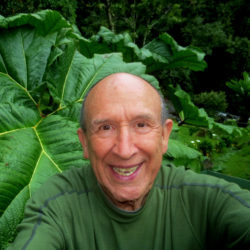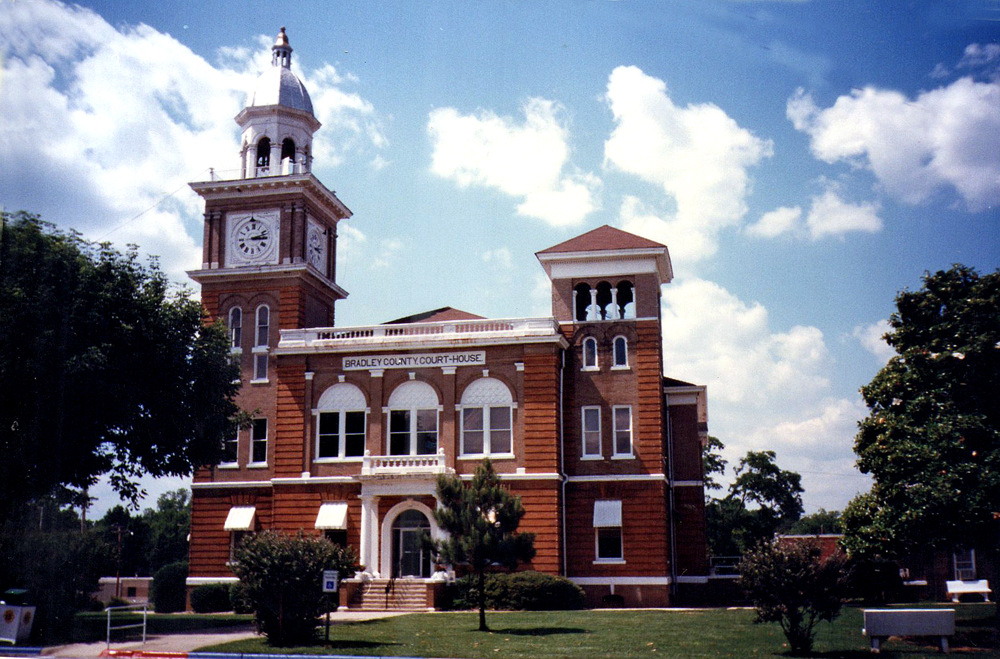I grew up in 6 specific small towns in Arkansas, all of which could be compared to the fictional town of Maycomb, AL in the novel To Kill a Mockingbird, often compared to author Harper Lee’s birth town of Monroeville, AL. See the quote at end of this article and the link to more analysis of “Small Town Southern Life,” which in many ways is the main theme of the Harper Lee story and my story of growing up in South Arkansas.
Growing up in these Specific Small Towns:
Town name links are to a current Wikipedia page about that town.
- 1940 -Born in a small farming town of about 5,000 people (Warren, AR) featured photo above
- 1942-Moved to a twice-as-big, smelly paper mill town (Camden, AR)
- 1944-Moved to a city of 80,000 with a military base (Fort Smith, AR) during WWII
- 1946-Moved to a village of 3,000 (Marianna, AR) for a short time before
- 1946-Moving to a city of about 40,000 (Pine Bluff, AR)
- 1947-Moved to the oil town of less than 20,000 (El Dorado, AR) where we stayed the longest until 1955 when we moved to Tulsa, OK where I went to high school. Then back to a small town for 2 1/2 years
- 1960-62 for my last 2.5 years of college at Ouachita Baptist College, Arkadelphia, AR
- Not sure if it is ironical or what, but after living most of my adult years in big cities, I chose to live my final retirement years in a town the same size as my birth town, Atenas, Alajuela, Costa Rica (link is to my photo galleries of Atenas). ¡Pura vida!
Growing Up in the Segregated Confederacy
All of these were rural, very “southern” with a confederate statue on the courthouse square, confederate flags commonly flown, and black people segregated to what most of the white people called “Nigger Town.” And almost no other racial or cultural groups.
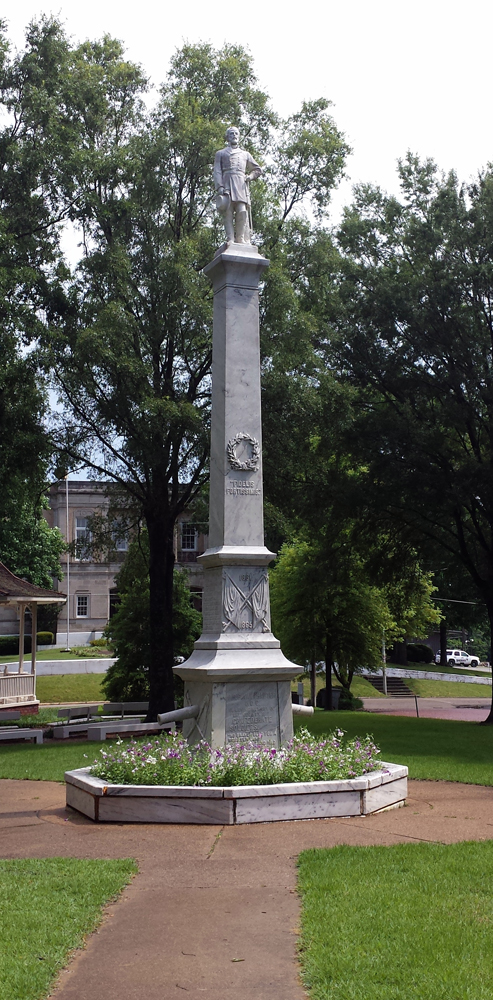
The businesses that allowed blacks had separate restrooms and water fountains. And the strange thing to me was that the Rialto Theater in El Dorado had separate “Colored Entrance” to seating in the balcony where I would have loved to sit as a kid! 🙂 While the white entrance led to downstairs seats. All restaurants or cafes were white-only. I never went to school or church with anyone who wasn’t white until I got to the University of Oklahoma. This segregation affected me differently than a lot of kids because inside me I knew it was “wrong” and kept wondering if we would ever “get right.” 🙂
The Robert E. Lee statue above is in Marianna, but there was a similar one in every town where we lived! 🙂
And the truth is that even though we moved to a “big city” (in our eyes) in 1955, Tulsa was not much different, very segregated not only from blacks but Indigenous Indians too! And it was just as prejudiced and “southern acting” as all these smaller towns. Just a “big” small town.
My Chidester, AR Experience
During my senior year at Ouachita Baptist College in Arkadelphia, every weekend and Wednesday evening I traveled south to the little village of Chidester, halfway between Camden (my 2nd childhood home) and Hope (Bill Clinton’s childhood home) to pastor the little rural church there called Chidester Baptist Church (FB Page). Though I did not actually “live” in Chidester, I fully experienced it and her people for one year with all church activities, many meals in many homes, funerals, baptisms, sicknesses, heartaches and joys! It was an old sawmill town where the sawmill had shut down and the train quit stopping, but roared by every night I slept there. It was that one year as a part-time pastor in a village that helped me discern that God did not want me to be a pastor. The following year I went to seminary to prepare for youth ministry which in various versions became my life work. I also decided then that I could not spend the rest of my life in a small town.
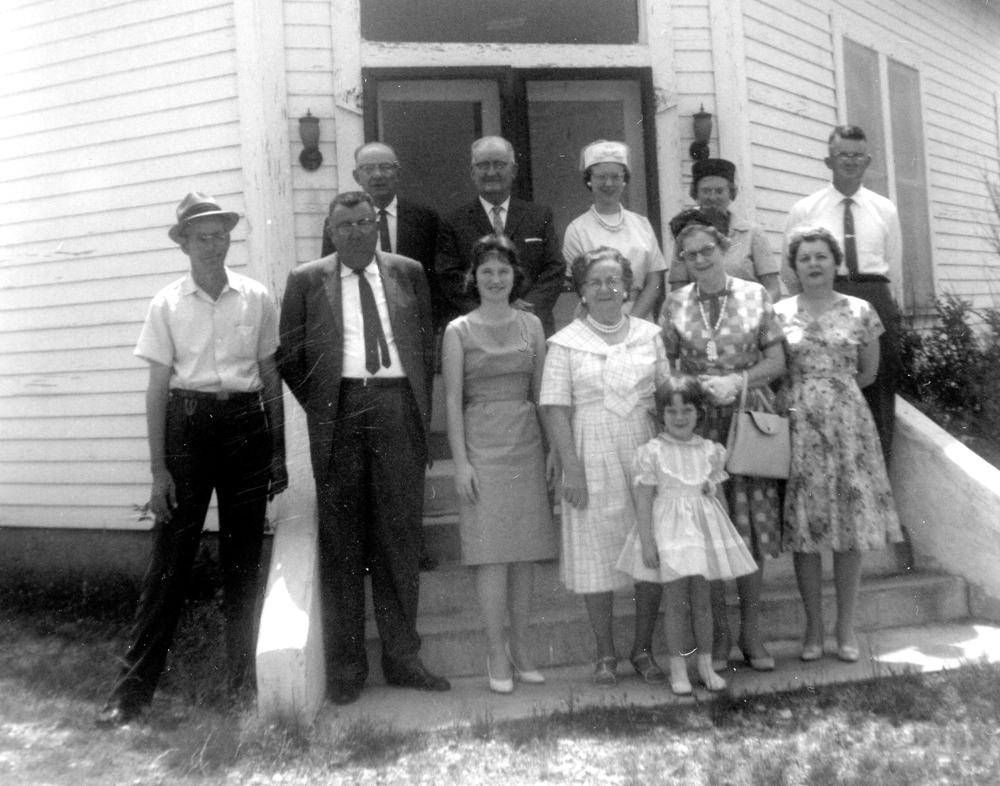
Yes! There Are Good Things About Growing Up in Small Towns.
Because we were in El Dorado longer, I can speak to the positive nature of many or our friends and my best friend Micky Parker, the early Bible learning in my childhood Sunday School classes, some great school teachers and learning experiences, and of course Boy Scouts for me. Yes, all of that can happen in a big city neighborhood (as with my children), but has a different atmosphere in a smaller town. And the fewer things to do in a small town contributes to creativity in play and in living life I believe. A greater sense of community in some ways, probably. And my father had a particular part to play in the community with me having a kind of pride in his business. Plus the slower pace of life in a small town, especially in the South, can also contribute to tranquility and mental health I believe.
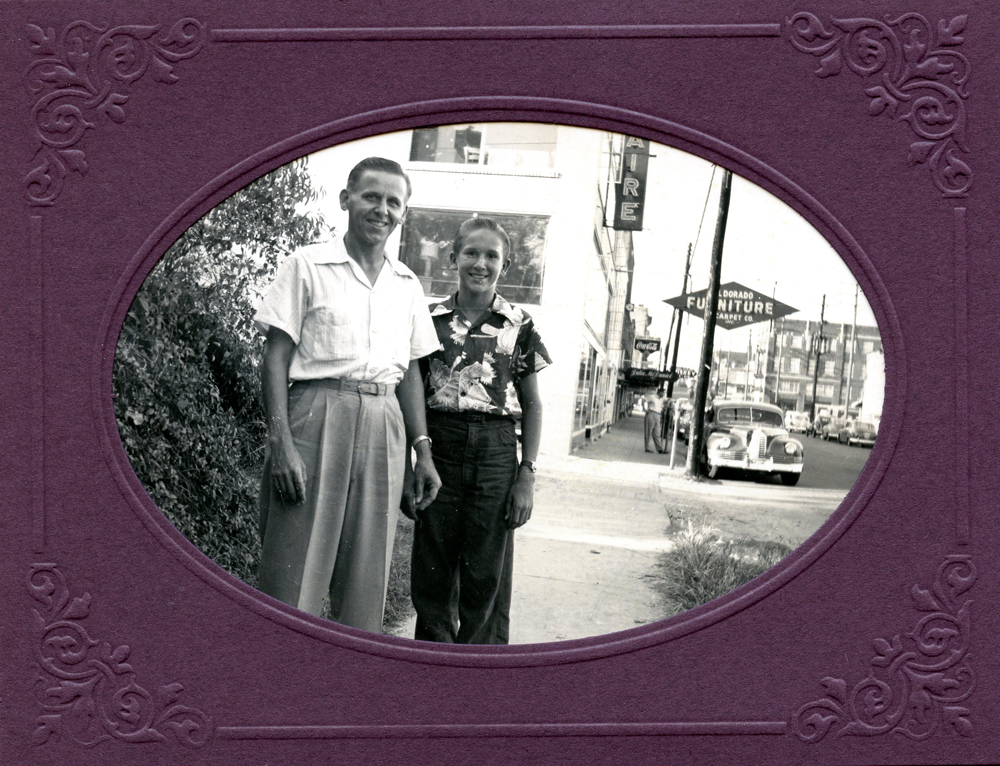
One Town Would Have Been Different Than 6 or 7 Towns!
I must say that growing up in just one small town would have been much different than in 6 or more, but Dad’s work and the desire to keep improving and make more money kept us moving to better jobs as a retail clothier and thus different small towns. In one town we would have had roots and history and more of a sense of place and belonging as an integral part of a community. As it was, except for El Dorado (8 years), we were more like “passing through” several small towns and not rooted in any way. And that moving around is another whole issue that I may speak to somewhere else as I write more about our family dynamics.
Still Like Living in “Maycomb, AL” of To Kill a Mockingbird
And I haven’t mentioned yet about always being hot and sweaty, especially in El Dorado on the Louisiana border, reminding me of the Alabama town in To Kill a Mockingbird:
“Maycomb was a tired old town, even in 1932 when I first knew it. Somehow, it was hotter then. Men’s stiff collars wilted by nine in the morning. Ladies bathed before noon after their three o’clock naps. And by nightfall were like soft teacakes with frosting from sweating and sweet talcum. The day was twenty-four hours long, but it seemed longer. There’s no hurry, for there’s nowhere to go and nothing to buy…and no money to buy it with.”
― Harper Lee, To Kill a Mockingbird
One recurring theme in that classic book and movie was “Small Town Southern Life” which is discussed in this interesting website, LitCharts Theme Analysis. Yes, in many ways I grew up in Maycomb, Alabama, the southern town of the book To Kill a Mockingbird. Though I was different from Scout in the book in many ways, I also experienced many similar things as she did and also like her, I have both good and bad memories from growing up in small southern towns. And on those several occasions of returning to Warren for family reunions as an older adult, having lived in a different world from my relatives in Warren, I sometimes found relating to them to be awkward. And fortunately I never returned after Trump became President since most of them were staunch supporter of whom I consider the worst president in American history. I even “un-friended” one cousin in Warren on Facebook because of her propagation of Trump and Q-anon fake conspiracy theories. It has become “another world” for me and I’m not sure of what positive influences I received and believe that I have rejected what I consider the negative influences of a small southern town.
So Where Did I Live in My Adult Life?
Cities! Of Course! Since by high school or college I was tired of little southern towns and wanted to live in bigger more contemporary cities, so where did I live? Well, still in the south but always in big cities before my retirement:
- Dallas-Fort Worth, TX (3 times for 8 years total)
- Miami, FL (2 years+)
- Memphis, TN (7 years)
- Nashville, TN (37 years)
- And then . . .
The Last Laugh is On Me!
Or maybe I should say a great irony of life! In the final days of my life I moved to Costa Rica to finish out my life living in nature and peace away from the chaos and ugliness of the rural, southern Republican politics of the rich and racist that is as bad in the cities as the small towns. And where do I land? In a Costa Rican small farming town of about 5,000 people, Atenas, the same size as my birth town of Warren, AR. Of course it is night & day different from Warren, in a totally different culture and people and politics and atmosphere! But still . . . Born in a small farming town, spent my whole adult life staying away from small towns, and now planning to die in a small farming town! Dramatic irony? Situational irony? Or just plain funny?
🙂
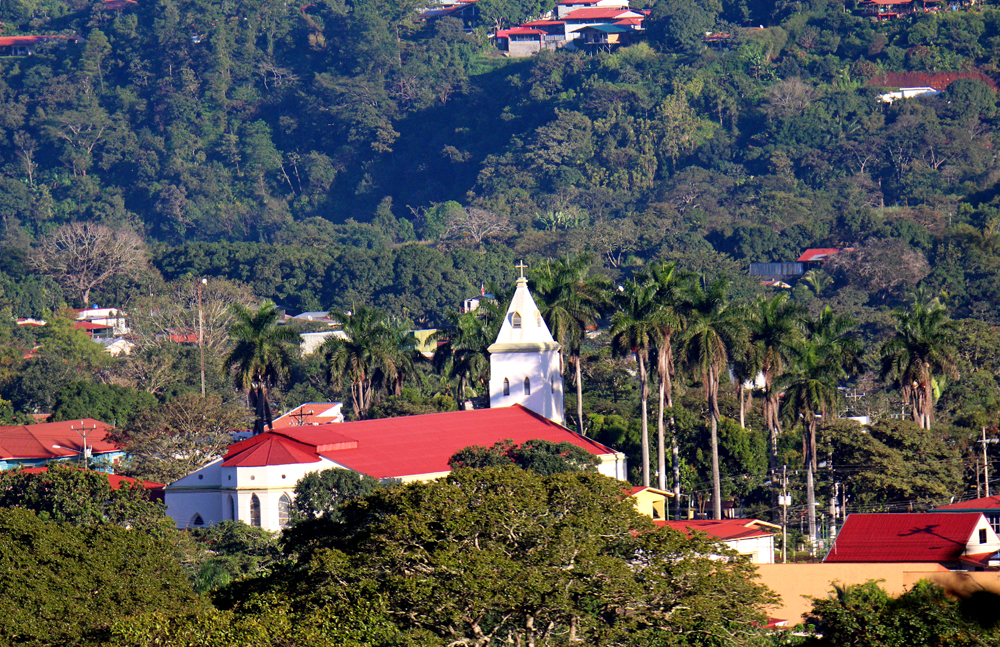
¡Pura Vida!
Back to Family of Origin main page.

